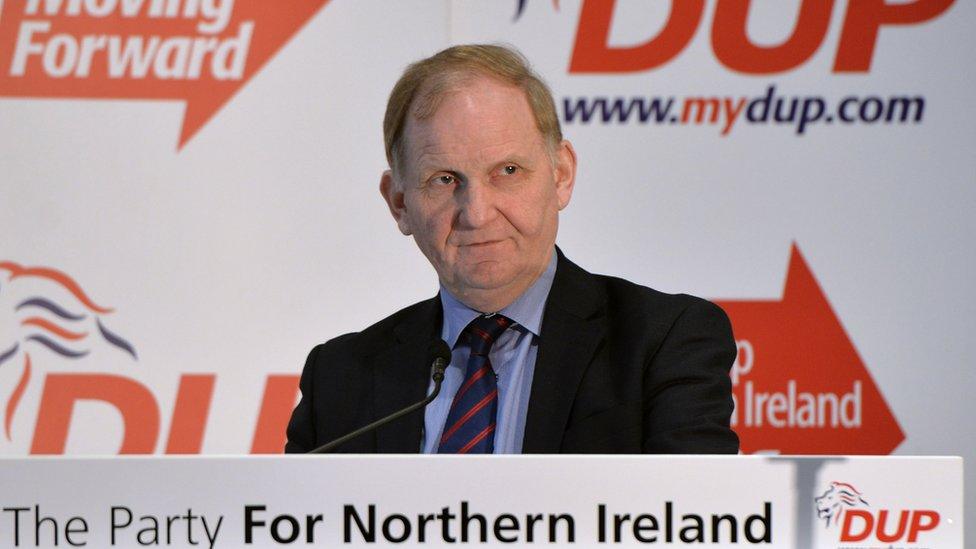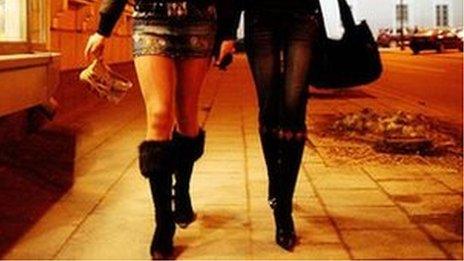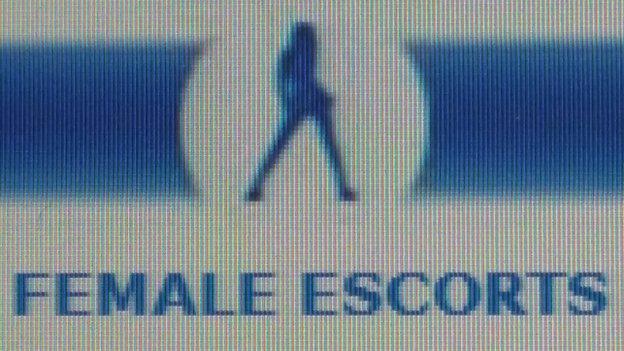Human trafficking: One conviction under NI 'paying for sex' law
- Published

Other countries with similar acts have seen more convictions than in Northern Ireland
A law that makes paying for sexual services a crime in Northern Ireland has led to just one conviction since 2015, new figures show.
There have been calls for a review of the legislation, which was brought in to tackle human trafficking.
The architect of the law, Lord Morrow of the Democratic Unionist Party (DUP), has called for it to be reviewed, including how it is enforced by police.
He said he was bitterly disappointed there had not been more convictions.
Figures released under a Freedom of Information (FoI) request showed that between 2018 and 2023, there were 75 arrests.
Of those, 21 resulted in charges. There were also four discretionary disposals, 24 cautions and one conviction.
Human trafficking can result in vulnerable women being forced into prostitution.
Trafficking victims rise
In July, Women's Aid said they had seen a significant increase in the number of trafficking victims they were supporting - from 47 in 2021 to 243.
Most were victims of sexual exploitation and some were forced into domestic servitude.
CARE, a social policy charity, supported the paying for sexual services legislation in 2015 and believes it has worked more effectively in other countries.
"It's concerning because this legislation aims to protect vulnerable women, and it aims to combat human trafficking," said Dr Rebecca Stevenson of CARE.
Dr Stevenson said she was confused as there were examples where the legislation has been applied, such as Sweden, which had higher conviction rates.
"In the first year while the law was being embedded there were 10 convictions but by the 11th year there were more than 300 convictions, so the law has worked in other countries," she added.
"We're confused as to why it hasn't worked in Northern Ireland, and there doesn't appear to be a material reason for that."
'Enforcement not happening'
Lord Morrow told BBC News NI that "legislation will only work if it's enforced".
"When my legislation came into force, I did expect more prosecutions, I'm bitterly disappointed it has not happened," he said.
"We need to be finding out why it is not happening because the other end of the activity, it's happening. But enforcement doesn't seem to be happening to the same degree."

Lord Morrow, who introduced the law, said he was bitterly disappointed at the conviction rate
He said he planned to ask the Police Service of Northern Ireland (PSNI) in the near future if it felt there were inadequacies in the bill, which made it difficult to enforce.
"No bill is perfect, and if it has to be amended, then it should be amended," he said.
In a statement, the PSNI said it remained "committed to safeguarding innocent victims who are being exploited".
"The solution, of course, requires collective efforts," said Det Insp Rachel Miskelly.
"I will take every opportunity possible to appeal to anyone who has information, or concerns, to please do the right thing and contact us."
If you have been affected by any of the issues in this article, help and advice is available at BBC Action Line.
- Published10 August 2016

- Published1 June 2015

- Published21 October 2014
